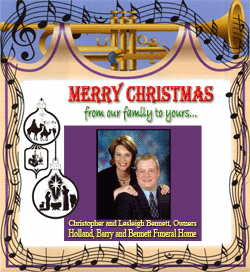 Throughout our nation's history, Thanksgiving has been a day set
aside in the autumn when people give thanks for what they have been
given. This tradition has progressed from when America was founded
to today, when we sit down and celebrate with our family and
friends. Today we focus on the family and the food, but during the
Civil War, Thanksgiving espoused the importance of reflection,
silence and prayer. Throughout our nation's history, Thanksgiving has been a day set
aside in the autumn when people give thanks for what they have been
given. This tradition has progressed from when America was founded
to today, when we sit down and celebrate with our family and
friends. Today we focus on the family and the food, but during the
Civil War, Thanksgiving espoused the importance of reflection,
silence and prayer.Throughout Lincoln's presidency, he issued
numerous proclamations, most pertaining to the Civil War. But,
looking at his writings as president, there are nine proclamations
urging the American population to take a day to pray, reflect and
repent.

The first one was issued Aug. 12, 1861, in response to Congress.
The "Proclamation of a National Fast Day" for the last Thursday in
September encouraged Americans to make it a day of "public
humiliation, prayer and fasting, to be observed by the people of the
United States with religious solemnities, and the offering of
fervent supplications to Almighty God for the safety and welfare of
these States, His blessings on their arms, and a speedy restoration
of peace."1
This proclamation was issued 3 1/2 months after the attack on
Fort Sumter. By that time 11 states had seceded from the Union, and
in May, Lincoln's good friend Col. Elmer Ellsworth had become the
first officer to die in the war. U.S. Gen. McDowell was also
replaced by Gen. George B. McClellan (he proved to be a problem for
Lincoln during the Civil War). President Lincoln called for the
support and faith of the American people to pray for peace and a
speedy end to the war.
Lincoln's second proclamation of thanksgiving was made Nov. 28,
1861. 2 This time the president ordered governmental
departments to be closed for a local day of thanksgiving. On this
day he invited his good friend Joshua Speed and his wife and others
to a dinner at the White House. It was not our typical Thanksgiving
meal, but a meal that gave the president a chance to reflect, along
with his fellow Americans, on what he was thankful for, such as his
friends and family.
During the same month when Lincoln made the presidential order,
he also continued to deal with growing tensions between the United
States and Great Britain. This was caused by the Union navy seizing
Confederate commissioners to Great Britain and France from the
British steamer Trent, leading to what we know as the Trent Affair.
It was not until April 10, 1862, that President Lincoln issued
another proclamation, a "Proclamation of Thanksgiving for
Victories," that displayed a compassion for both the Union and
Confederates. In this proclamation, he implored "spiritual
consolations in behalf of all who have been brought into affliction
by the casualties and calamities of sedition and civil war." 3
He called on the American people to take time to remember they were
all Americans affected by this great tragedy of war.
Lincoln made another similar proclamation three months after the
Emancipation Proclamation went into effect. On March 30, 1863, he
issued the "Proclamation Appointing a National Fast Day." In this
act, he again called on the American people to "confess their sins
and transgressions, in humble sorrow, yet with assured hope that
genuine repentance will lead to mercy and pardon; and to recognize
the sublime truth, announced in the Holy Scriptures and proven by
all history, that those nations only are blessed whose God is the
Lord." 4

This continued until the victory at Gettysburg on July 3, 1863,
which led President Lincoln to declare "a day for National
Thanksgiving, Praise, and Prayer" (Aug. 6, 1863). He asked "the
People of the United States to assemble on that occasion in their
customary places of worship, and in the forms approved by their own
consciences, render the homage due to the Divine Majesty, for the
wonderful things he has done in the Nation's behalf, and invoke the
influence of His Holy Spirit to subdue the anger, which has
produced, and so long sustained a needless and cruel rebellion, to
change the hearts of the insurgents, to guide the counsels of the
Government with wisdom adequate to so great a national emergency." 5
[to top of second column] |

As a result of this proclamation, Lincoln received an interesting
letter from a woman by the name of Sarah J. Hale. She wrote:
"As the President of the
United States has the power of appointments for the District
of Columbia and the Territories; also for the Army and Navy
and all American citizens abroad who claim protection from
the U. S. Flag – could he not, with right as well as duty,
issue his proclamation for a Day of National Thanksgiving
for all the above classes of persons? And would it not be
fitting and patriotic for him to appeal to the Governors of
all the States, inviting and commending these to unite in
issuing proclamations for the last Thursday in November as
the Day of Thanksgiving for the people of each State? Thus
the great Union Festival of America would be established."6
Sarah Hale, whose letter is preserved in the Library of Congress,
was the editor of a women's magazine, Godey's Lady's Book, and was
determined to have a national day of Thanksgiving.
With President Lincoln's numerous proclamations and requests for
thanksgiving and fasting, Mrs. Hale believed that if there was going
to be a national day of Thanksgiving, Lincoln was the man who could
make it happen.
She finally found the result she sought. On Oct. 3, 1863, Lincoln
issued a proclamation asking the American people to "set apart and
observe the last Thursday of November next, as a day of
[Thanksgiving] and Praise to our beneficent Father who dwelleth in
the Heavens." 7 In this proclamation he asked for prayer
for "all those who have become widows, orphans, mourners or
sufferers in the lamentable civil strife in which we are unavoidably
engaged."8
This was an act that, again, Lincoln used as a way of uniting the
American people to care for one another.

By 1864 Lincoln felt that the country needed to be reminded of
the reasons to be thankful. He issued two more proclamations. In the
first one, issued on May 9, 1864, he asked for thanksgiving and
prayer for recent successful operations of the army, and the second,
issued on July 7, 1864, was the "Proclamation of a Day of Prayer."
These two proclamations were very similar to the proclamations he
made at the beginning of the war. He used days of thanksgiving to
unite the country and remind the American people what they were
fighting for.
But it was not until Oct. 24, 1864, that President Lincoln
finally created the "Proclamation of Thanksgiving," which set the
last Thursday of November as a day of thanksgiving. Upon this
proclamation, editor Sarah Hale summed up the day perfectly in her
article "Our National Thanksgiving":
"On the twenty-fourth of this month recurs the Day – ‘The
last Thursday in November' – which has now become firmly
established as one of the three National Festivals of
America. ‘The Birth of Washington,' which brings before all
minds the example of the patriot hero and the Christian man;
‘Independence Day,' which reminds us of the free principles
on which our Government was founded; and ‘Thanksgiving Day,'
which lifts our hearts to Heaven in grateful devotion, and
knits them together in bonds of social affection are three
anniversaries such as no other People have the good fortune
to enjoy. We fervently trust that, so long as the nation
endures, these three Festivals will continue to be observed
with an ever deepening sense of their beauty and value." 9
This Thanksgiving, I hope you remember President Lincoln's nine
proclamations of prayer and thanksgiving and Mrs. Sarah J. Hale's
words of thanksgiving. Take the time to be truly thankful for what
you have and for the sacrifices that made them possible.
Happy Thanksgiving, from the Lincoln Heritage Museum.
[By ANNE MOSELEY,
Lincoln Heritage
Museum]
1 Lincoln, Abraham,
"Collected Works of Abraham Lincoln
1809-1865"
2 Lincoln, Abraham, "Collected Works of Abraham Lincoln
1809-1865"
3 Lincoln, Abraham, "Collected Works of Abraham Lincoln
1809-1865"
4 Lincoln, Abraham, "Collected Works of Abraham Lincoln
1809-1865"
5 Lincoln, Abraham, "Collected Works of Abraham Lincoln
1809-1865"
6 Hale, Sarah Josephine. Library of Congress, Manuscript
Collection.
7 Lincoln, Abraham, "Collected Works of Abraham Lincoln
1809-1865"
8 Lincoln, Abraham, "Collected Works of Abraham Lincoln
1809-1865"
9 Hale, Sarah J. "Our National Thanksgiving." Godey's
Lady's Book. November 1864.
|